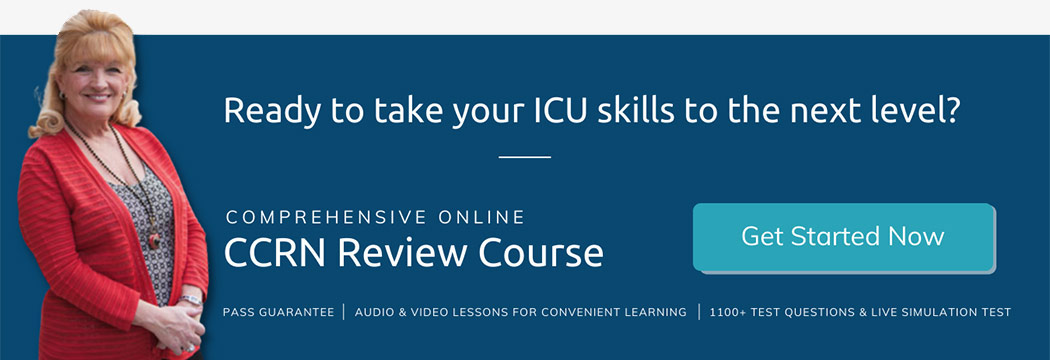What is the CCRN?
A CCRN (Critical Care Registered Nurse) certificate allows nurses to provide “direct care to acutely/critically ill adult patients regardless of their physical location.” Nurses who obtain their CCRN can then work in areas such as intensive care units, cardiac care units, combined ICU/CCUs, medical/surgical ICUs, trauma units, and critical care transport/flight. This qualification is just one step toward becoming an ICU nurse, but it can be the most daunting and time-consuming one.
Do you meet the requirements to take it?
Before getting started on your quest for your CCRN, you’ll need to make sure you have a current RN or APRN license that is not under disciplinary action or review and doesn’t carry limitations, such as drug administration or practice area exclusions. Applicants must also meet certain clinical practice hour requirements.
The Two Options
- Practice as an RN or APRN for 1,750 hours in the direct care of acutely or critically ill patients during the past two years, with 875 of those hours accrued within the past year.
- Practice as an RN or APRN for 2,000 hours in the direct care of acutely or critically ill patients during the last five years, with 144 of those hours accrued within the past year.
The test itself can cost between $170 and $360, depending on whether it is your first exam, retest, or CCRN renewal. Some employers or institutions will pay for or reimburse your exam fee. Look into this if you work for a major institution or ask your management staff if this is an option.
The Breakdown
Eighty percent of the test will cover your clinical judgment in areas such as cardiovascular (17%), respiratory (15%), endocrine/hematology/gastrointestinal/renal/integumentary (20%), musculoskeletal/neurological/psychosocial (14%), and multisystem (14%) specialties. Many CCRN experts agree that since cardiovascular systems make up the largest, single-specialty percentage of the test, that is one area high performers should focus their studies on.
The remaining 20% covers professional caring and ethical practice, which includes questions on key characteristics of a successful ICU nurse, such as collaboration, critical thinking, and caring practices like compassion.
The exam is 150 questions long, and you will have three hours to complete it. One-hundred twenty five questions are scored while the remaining 25 are not. You only need to get 87 questions correct to pass the exam.





